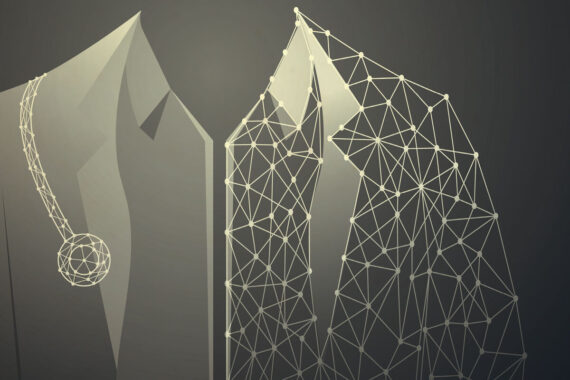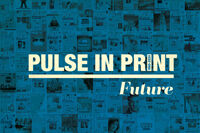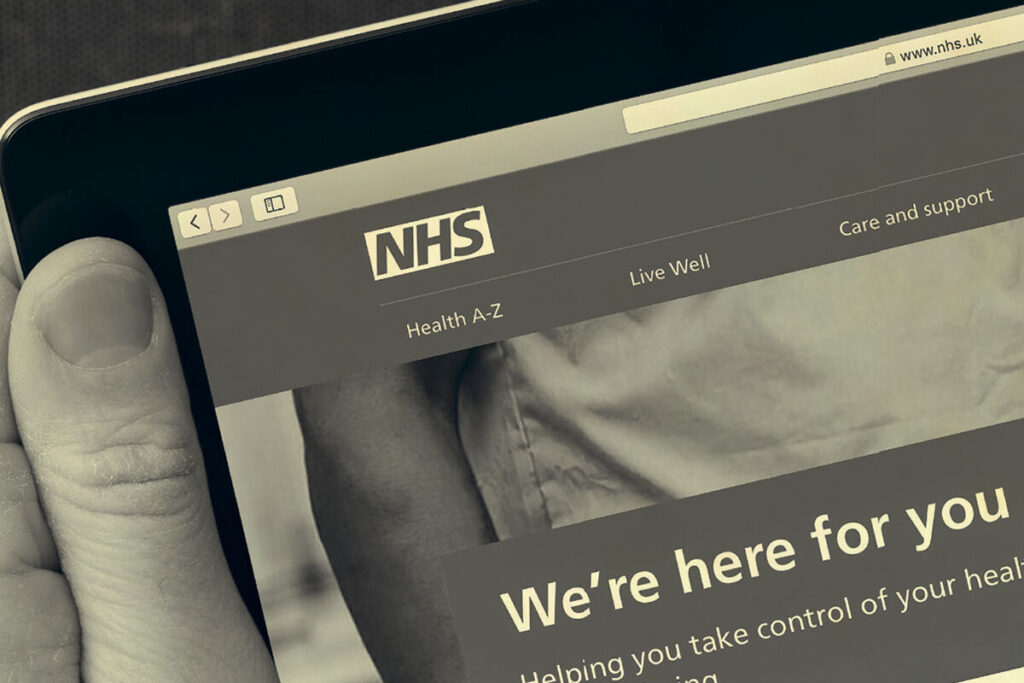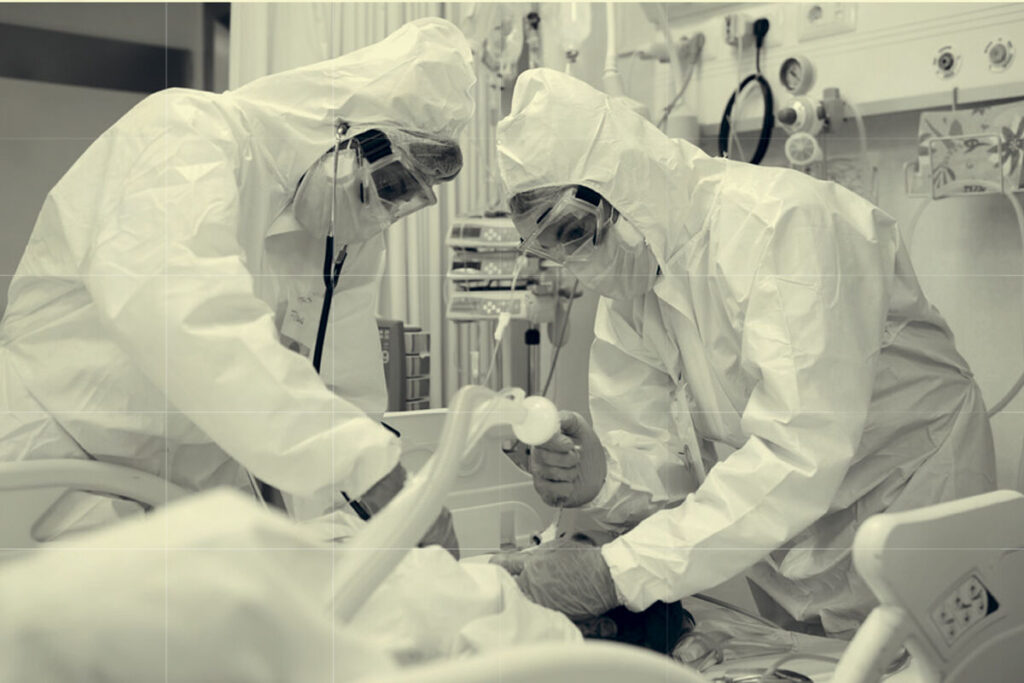How will general practice look in 2044?


General practice is a far cry from its pre-2004 guise. As part of our final issue celebrations looking at the past, present and future, we consider the role of GPs, NHS, technology and viruses over the next 20 years – from likely to, er, less likely scenarios (though if robot penguins replace therapists, you read it here first)
Indulging in future predictions is a mug’s game (but that isn’t stopping us). One piece from 1967 predicted transplantation animal farms, that all bacterial infection would be conquered and improved hallucinogens as adjuvants in psychotherapy. A 1980 article predicted the GP’s role would be gone by 2010. Where have we heard that before?
What will the role of GPs be?
The probable: More services in general practice through MDTs
There was a time when there was only one healthcare professional (HCP) in a practice – the actual GP. ‘When I started out, I was syringing ears, doing baby immunisations, giving travel jabs, and I was doing all that in my normal clinic,’ recalls Dr Chaand Nagpaul, former BMA and GP Committee chair.
We’ve come a long way since then, but provision of care by other HCPs has accelerated in recent years. Without a drastic change of course, we will see wider multidisciplinary working by 2044. This will involve larger entities, building on primary care networks – although, given the BMA’s opposition to this model, they are likely to take a different form.
There will almost certainly be a blurring of the lines between primary and secondary care. Dr Nagpaul says: ‘I believe the boundary between primary and secondary care has been one of the most damaging barriers for coordinating patient care. It has resulted in huge amounts of duplicated work, expense and bureaucracy, and has demoralised GPs. I think and hope we will see a breakdown of this boundary and will no longer use words like primary and secondary care. I think the term “primary sector” is already a misnomer because GPs are now looking after patients who historically would have been patients in secondary care.’
So how could all this look? GP lead of Doctors Association UK Dr Stephen Taylor says: ‘I’d love community care to be much more integrated, with nurses, physios, everyone working together in the community to make it amazing. It will need more funding to prevent hospitals becoming overwhelmed… I think they’re going to need consultants in general care.’ Greater use of specialists is already happening, with the move to add staff and associate specialist doctors to the primary care workforce.
For GPs, the good news is that – despite the current row around GPs being replaced by physician associates – under Dr Taylor’s scenario, they are central to plans involving multidisciplinary teams (MDTs). NHS England’s workforce plan is designed to increase the number of GPs educated and trained in England; by 2031, it plans to double the medical school places, give all foundation year doctors a placement in general practice, and increase GP training places from 4,000 to 6,000 a year.
GPs’ roles may change, however. Former RCGP chair Professor Martin Marshall says: ‘First, they will deal with more complex problems, seeing fewer patients in longer appointments (20-30 minutes should become the norm). Second, they will be leading the team and the organisation.’
Dr Nagpaul agrees, predicting consultation times of ‘30-40 minutes’. He adds: ‘In 20 years’ time, a far larger proportion of the population will have long-term conditions and multiple morbidity, and rates of dementia are going up.’ He thinks GPs will be responsible for these cohorts of patients.
The possible: Salaried service or corporations running general practice
How these MDTs will be run is another matter. There looms large the spectre of a fully salaried service – something the Labour Party floated last year, before slightly rowing back.
For east London GP Dr Farzana Hussain, while there might still be partnerships, they won’t be in the form we are used to. She says: ‘The majority of GPs will be salaried. If there are partnerships, they’ll be more corporate. The traditional model won’t be around at all.
‘Nobody I know under 40 wants to be a partner. I think that is an intentional narrative because government policies and underinvestment have led to partners being overworked and not trusted to run their own businesses, with the core practice contract starved of funds. [Shadow health secretary] Wes Streeting said you can’t trust partnerships. I simply don’t think the resources will be there unless you have a patient list of at least 20,000.’
This will affect patient care, she adds: ‘It will lead to a lessening of continuity. You can have team continuity, but that is not the same as human relationships. In at-scale organisations, it’s hard to ensure information passes across clinicians – records are not the same as speaking to a human being. It will completely erode patient trust in clinicians, which will also lead to more demand for appointments and more complaints.’
In the view of health policy analyst Roy Lilley, ‘the partnership deal is probably finished’. He adds: ‘I think they’ll probably be vertically integrated with hospitals. I think the hospital could run the HR, the training, the wages, the care navigation, all of that.
‘Look at what Tesco did. They put all their best staff in one big place out of town. They call it a supermarket, we call it a hospital. And around the corner, you’ll have the Tesco Express, or Tesco Local where you can buy some stuff but not everything. This will be the future of primary care because it is essentially retailing health services.’
The improbable: GPs become unskilled
Perhaps the worst-case scenario is GPs becoming deskilled, leading to the role as we think of it now being redundant as general practice becomes more transactional.
Dr Zoe Norris, a former Pulse columnist and GP in Hull, says the GP role could lose the human element that makes it attractive now. She says: ‘You will have your shift, do your work, you will be rewarded for the points you score based on patient satisfaction outcome measures, you’ll have your review on the website as to how good you are. The GPs of the future will not have that interpersonal warmth that comes with general practice and maybe it will attract a completely different cohort of doctor.
‘It might be the type of person who’s more likely to go into orthopaedic surgery now. Someone who enjoys the diagnostic challenge, the science side, but actually doesn’t necessarily enjoy the talking to people side. Whereas I think most GPs now do enjoy talking to patients, and the random quirks like when someone brings a dead pheasant in and leaves it in a carrier bag for you at reception, or you have to dodge three pigs to get to someone’s front door on a home visit. I think that element is going to go and be replaced by some very efficient and effective doctors in a cold version of general practice.’
Graduates who want the human side will go into ‘palliative care or oncology, where a multidisciplinary approach is valued’, she says.
‘If you need to talk about broader issues, what’s going on at home, the social side of things, you want to confide in someone, I don’t think there’ll be any room for that. It will be purely about dealing with a medical issue – for anything else, you’ll be directed elsewhere.

The NHS
The probable: Two-tier service with good access but transactional care
Many plans for the role of GPs are predicated on the NHS still existing in 2044, and providing care free at the point of delivery. Throughout the history of Pulse, there have been fears around the future of the NHS, and whether some form of charging will be introduced.
Dr Hussain believes it is unlikely the NHS will go fully private: ‘The British public will never allow it,’ she says. ‘But we have already created a two-tier service.’
The Government and NHS have obsessed over access, and this is likely to continue whichever party holds power. So it could be that those who go private will be paying for more personalised care.
Dr Norris expects private general practice to become ‘much bigger, much more of a thing, in the same way that private hospitals are now’. She adds: ‘The people who can afford to pay will probably be paying. There will still exist a basic NHS provision, but what that will be is a much more Amazon-style transactional model. So there’ll be no continuity of care – it will all be in slick, sexy, jazzy, purpose-built buildings. But it will be a bit like a visit to A&E, with no choice about what you see, who you see or what’s done. That will be the offer. But it will be couched in terms of being modern and amazing, while actually compromising on some of the key benefits of primary care.’
Access will be vastly improved, but at a cost, she says: ‘You go in, you have that particular presenting thing dealt with, and then you go away, and it’s probably really convenient to book that appointment. You might not have the struggle getting through that you do now, because you’ll have done it on an app using voice control.’
The possible: Poor access as general practice follows the path of dentistry
The two-tier service in the ‘probable’ scenario above will still involve patients being able to register with an NHS GP – albeit with a loss of personalised care.
But there is a good chance there simply won’t be enough GPs willing to work for the NHS to meet the most basic demand, meaning patients will have no choice but to pay. Dr Hussein asks: ‘In 20 years’ time, with the current way of working, will my children who have just started medical school want to be in the NHS?’ She adds: ‘It will go the same way as dentistry. That provides a template that, if we are not careful, general practice will follow. I think that is a high possibility.’
Under such a system, the NHS will still offer GP services, but registrations will be limited. Again, the recent history of dentistry suggests this a very real possibility. Roy Lilley says: ‘When Virginia Bottomley was health secretary in the early 1990s, she had a row with dentists, saying they were “drilling for gold” because the contract they had rewarded them for doing fillings. She wanted to emphasise preventive dentistry, but that’s nonsense, because that’s beyond the purview of dentists. So they joined an insurance collective run by dentists, and we lost a lot of them from the NHS overnight.
‘My fear is that GPs will get fed up with the oppression that the NHS puts them under, as they become a dumping ground for everybody’s problem. And so we’ll see a lot becoming private doctors where patients can get an appointment 24/7 on a subscription basis, and they’ll prescribe with most of it done over the phone. Of course, they might well be outside the reach of the CQC and they’ll work with just consulting rooms, rather like a chiropractor might work.’
The improbable: A fully privatised service
Of course, the truly improbable scenario is an adequately funded general practice, with GPs able to provide both access and continuity where necessary on the NHS. But this article is concerned with scenarios that might actually happen.
More in the realms of possibility is that the UK follows the US, with a fully privatised NHS based on an insurance system. East London GP and chair of Tower Hamlets LMC Dr Jackie Applebee says that fully privatising the NHS has always been electoral suicide, but fears attitudes may shift. ‘The running down of the NHS is creating the story that it can’t cope, and it’s no good. If patient dissatisfaction reaches a certain critical level, there’ll be much more of an opportunity to bring in a different type of service. That’s a worry. I think even the Labour Party, who I’d expect to be defending it to the hilt, are not being as reassuring as they might be.’
Dr David Wrigley, GPC deputy chair and a GP in North Lancashire, says many GPs are having to consider leaving the NHS due to real-terms underfunding and neglect by government. He says: ‘You could argue this is part of a bigger game plan and how some politicians may want to see the NHS develop. Underfunding and starving the NHS allows many to say it is failing and we then see the onward creep of private providers as a justification and filling the care gap.’

Technology
The probable: AI takes on admin functions
It’s accepted that the role of technology – specifically artificial intelligence – will grow in the next 20 years, in general practice and wider society. The only question is, to what extent.
Around 50% of practice admin work can probably be automated. AI is already taking functions including transcribing consultations, creating clinical notes, writing referral letters, scheduling appointments, issuing reminders and even predicting demand. It is able to rewrite patient communications in jargon-free language and handle patient requests.
Hampshire GP and practice records access lead Dr Neil Bhatia, says: ‘What AI would do is what admin staff do. At the moment, a hospital letter comes in, admin staff read it and decide if a GP needs to look at it or whether it can be filed. It’s not impossible that AI could do some of this. Documents could come in electronically, be OCR read and interpreted by AI. But I think that’s very nuanced.’
The possible: AI takes on greater clinical functions
Professor Marshall says AI will be used ‘at first mostly for admin functions but increasingly and over (a long period of) time, for clinical decision making’. He adds: ‘We need to engage with the design of the latter.’
But it is likely that AI will soon encroach on clinical care, especially patient self-care. Dr Nagpaul says: ‘We’ll see a massive expansion of patient-empowered technology, for example, with smartwatches, routinely used to monitor patients.
‘We’ll probably see automation rather than patients coming to their healthcare provider, where information is transmitted to a record directly, and where responses and information given to patients are also automated, bypassing the need for us to be involved.’
Here, Dr Norris, envisages a dystopian situation for GPs. ‘We’ll have constant pings on our mobiles alerting us that Mr. Smith’s glucose has altered by 0.02. It will be like the whole blood pressure monitoring but a billion times worse. We’ll need an army of workers to respond to the alerts.’
Dr Bhatia says: ‘I think AI will be the gateway into primary care – you log on, you say what you want, and AI will work through it until it can’t go any further. I have no doubt that’s what it’s going to be like in 20 years. During a GP consultation, it might be that as I type in my consultation, a little box on my screen is flashing up, saying “do this, do that, check that”.’
‘Certainly, there may well be a module you can click on and say my patient presented with this, this, and this and it would make suggestions, as a more credible version of Google – which despite what any doctor says, we all use when we look stuff up.’
The improbable: GPs are completely replaced by AI overlords
Entering the realms of sci-fi, as AI develops it might be able to replicate more of the human aspects, says Pulse columnist and Bristol GP Dr Shaba Nabi. ‘When I say to people that AI is brilliant, but it can’t do the human element, the psychological aspect, etc, they respond that it will one day. Now, when you put “chest pain” into an algorithm, someone with anxiety might be fast-tracked to 999 as an MI because it’s not sophisticated enough. But in 20 years’ time, the algorithms will be so sophisticated that they might be better than GPs at differentiating pathology.
‘If you think about how fast technology has progressed, we can’t rule out such developments in 20 years’ time. The human element will all be in the programming and you’d still need doctors to steer on that. Every algorithm might need a route that says “speak to a human”, but that might only be 5% or 10% of all consultations.’
We could even see all surgery ‘done by robots completely’, Dr Nabi adds. ‘For a heart attack, the AI can send you for an ECG, which will be analysed automatically, then you might need a stent, which will be done by robots.’
AI could even do therapy, she says. ‘You think, what’s more human than having therapy? But I think AI is perfectly capable of offering people therapy.’
Dr Norris has a theory on this. ‘There’s probably going to be some kind of movable robot penguin who can come up with positive affirmations around how it makes you feel when you’re struggling with these conditions, programmed with the soothing voice of Davina McCall so we can all feel really positive.’

Pandemics and new diseases
The likely: Increase in infectious diseases
Having emerged from the worst of the Covid pandemic, no one really wants to think about where the next new disease might be coming from. But Dr Peter English, a former GP and chair of the BMA Public Health Committee, says it would be ‘quite surprising’ if we didn’t have another pandemic in the next couple of decades. ‘We see one or two a decade,’ he says. It is not necessarily the case that it will have the same effect as the novel coronavirus, however.
While it’s not a certainty that the frequency of pandemics will increase, Dr English says, ‘it could happen’. And Covid has left us more susceptible to infectious diseases. ‘Measles is coming back, and we know that coronavirus can affect our immune systems. So there might be greater susceptibility to infection.’
Climate change is also a factor, he adds: ‘Those infections that we associate with developing countries near the equator could transfer to Western countries. We used to have a malaria in the UK and diseases like that and TB may make a comeback. We are seeing a return of rickets already.’
The possible: Another Covid-level virus, with no more preparedness
But even seeing the societal and public health chaos caused by Covid, there is no sign that we will be any more prepared for the next pandemic. ‘We shouldn’t fool ourselves that we are prepared, in the way we did with Covid,’ says Professor Marshall. ‘Emergency preparedness requires spare capacity and careful planning, neither of which we have.’
Dr English agrees. ‘The risk is that you plan for the last pandemic’, he says. ‘I doubt that there has been an improvement in the preparedness. Politicians don’t think in the medium and long term and they just keep their fingers crossed that a pandemic doesn’t happen under their watch.’
It is likely the next such disease will be airborne, Dr English says. ‘At the moment, we are good at keeping water quality high but not so good with air quality. We need to think about our legislative frameworks in the event of another airborne pandemic and think what kind of restrictions would be helpful. Instead of saying we shouldn’t meet outdoors, we should be thinking what sort of infection measures are likely to apply and preparing and planning exercises so the police know what they should be enforcing.’
The improbable (hopefully): Highly pathogenic avian flu
‘The real fear is that we get the pathogenicity of the avian influenza which can be transmitted from human to human,’ says Dr English. ‘If so, it will likely be as infectious as Covid, but with a high mortality rate.’
Such an infection could happen ‘any time when a human and bird virus is present in a bird and there could be a combination of genes’, he says.
‘The more you have humans living in close proximity with livestock, the more chance there is. We are seeing a number of these diseases coming out of China, where this is common.
‘It is not that unlikely and it’s something we are concerned about. This would be much more dangerous than Covid with mortality 10 times higher, potentially.’
Whatever happens to the NHS, general practice, technology or future diseases, it’s likely that any readers in 2044 will wonder what all the fuss was about. ‘I don’t think the end of general practice will be regretted,’ says Dr Norris. ‘In the same way that we’ve moved on from Brexit, we’re moving on from Covid. We seem to have a very good ability in this country to just forget what went wrong, and just kind of crack on with life and not look back. So actually, I think it’s going to be something that maybe people will hark back to, you know, when they talk to their grandkids. And that’s pretty depressing.’ Even AI might shed a tear at that.

Written by Jaimie Kaffash, additional reporting by Eliza Parr
Related Articles
READERS' COMMENTS [3]
Please note, only GPs are permitted to add comments to articles










You haven’t predicted the vertical integration of pulse into GP into the HSJ 🫢
We are fast becoming nothing more than geriatricians
Don’t forget your professional freedom. Time to stop teaching any PAs. NHS is a doomed system as it tries to do too much and dreams of perfection in a non perfect world. Private health has none of the unlimited demands.